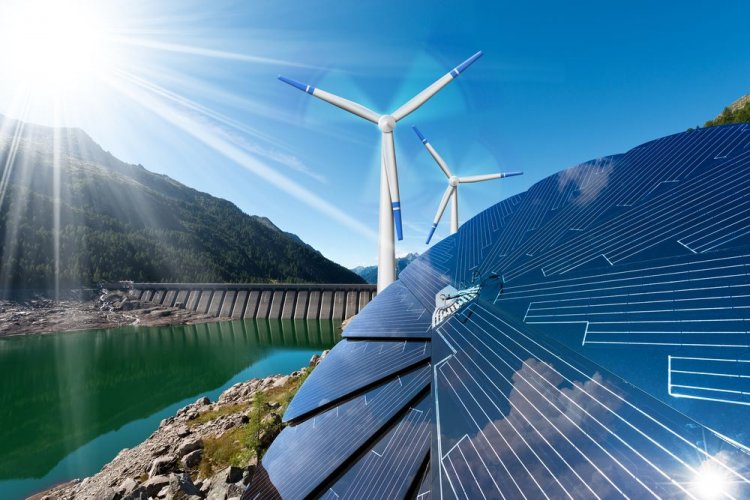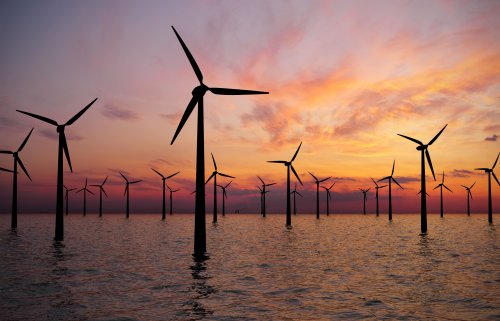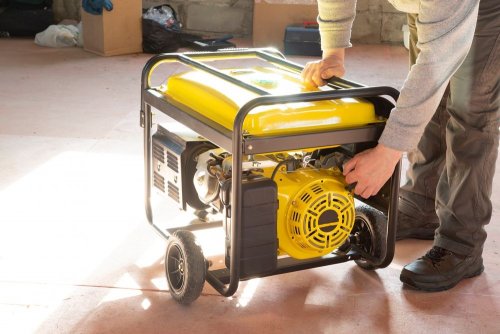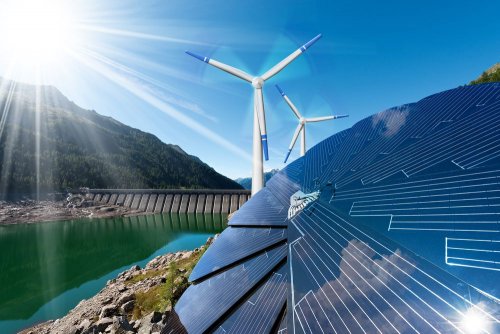Last year, renewable energy sources surpassed the 30% mark thanks to a significant increase in wind and solar power.
This data was published by the energy think tank Ember in its report Global Electricity Outlook 2024.
According to the report's authors, the reduction in fossil fuel use is "inevitable." They analyzed electricity generation data from 215 countries, including the latest 2023 data for 80 countries that account for 92% of global electricity demand.
More than 30% of the world's electricity is now generated from renewable sources. Significant growth in wind and solar power has helped push global electricity production to reach this milestone in 2023. So far, clean energy sources have already helped slow the growth in fossil fuel consumption by almost two-thirds over the past 10 years.
Ember's report also says that global renewable energy growth could have been even higher in 2023 if not for a five-year low in hydroelectric power generation. This happened due to drought in China and other countries of the world. The four countries most affected by the drought – China, India, Vietnam and Mexico – accounted for 95% of the growth in coal-fired generation.
Last year, the world's main supplier of electricity was solar energy. It provided twice as much new energy as coal. Solar energy retains its status as the fastest growing energy source for the 19th year in a row.
"The future of renewable energy is here. In particular, solar energy is growing faster than anyone thought possible," says Dave Jones, director of global research at Ember.
According to the report, Greece ranks second in the world for the share of solar energy in the energy balance – 19%, followed by Hungary (18%) and the Netherlands (17%). Chile was in first place with almost 20%.
The EU is the leader in the pace of development and implementation of RES. It produces 44% of its electricity from renewable sources, which is significantly ahead of the world average.
Sarah Brown, director of Ember's European program, says the EU holds the lead thanks to "early adoption and early action". She adds that the European Green Deal has played an important role in setting targets, developing policies and securing investment.
"You also have the invasion of Ukraine, which increased the sense of urgency to transition to clean energy and to abandon the use of fossil fuels – not only coal, but also gas, especially from Russia. This became a big impetus for accelerating the transition throughout the EU," he notes. Brown.
According to her, the EU is "very close" to achieving its goal of providing 72% of electricity production from renewable sources by 2030.
The authors of the report are confident that a new era of emission reduction in the energy sector is about to begin. They forecast a 2% drop in fossil fuel production this year, as half of the world's economies are at least 5 years past their peak fossil fuel use.
"The year 2023 was probably the turning point – the peak of energy emissions – a major turning point in the history of energy. But the rate of decline in emissions depends on how quickly the revolution in renewable energy takes place," said Dave Jones, one of the co-authors of the report. .
As EcoPolitic reported earlier, Ukraine aims to enter the top 10 leading countries in terms of renewable energy development rates.





